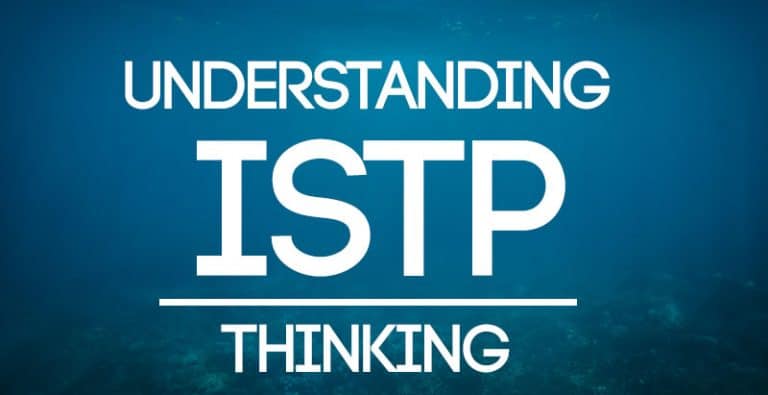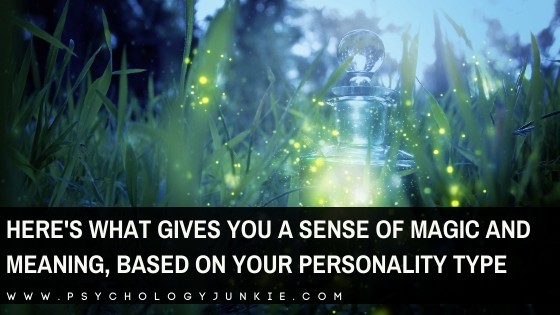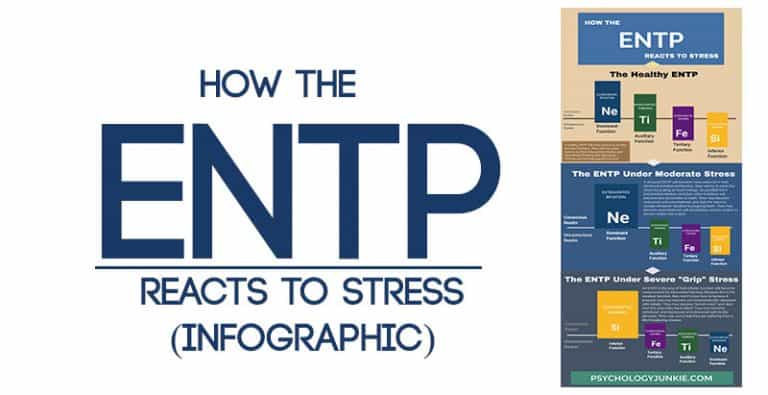10 Signs of an Unhealthy INTJ
INTJs are well-regarded in the typology community for their vision, insight, and strategic prowess. Many times the word INTJ feels synonymous with the words “intelligent”, “prodigious”, and “intellectual”. But what happens when you meet an INTJ who doesn’t seem to possess many of the qualities that INTJs are praised for? Or what happens when you’re dealing with an unhealthy INTJ? Check out these signs that you’re dealing with a poorly developed or immature INTJ.
Table of contents
Estimated reading time: 8 minutes

10 Signs of an Unhealthy INTJ
Their Way is the Only Right Way
Unhealthy INTJs get tunnel vision about their ideas and visions. It is difficult for them to think outside of their own predictions and they can become closed-minded to other views and perspectives.
The technical reasons for this:
Over-inflation of the INTJ’s dominant function, Introverted Intuition, can result in stubbornness and single-minded fixation on one vision or idea. Stubbornness isn’t always bad, but unhealthy INTJs are so singularly-focused that they block out anything that would contradict them. Sometimes this is the result of Opposing Role Extraverted Intuition and sometimes it’s a lack of development of the auxiliary function.
They Don’t Care How You Feel
This is where the INTJ stereotypes can show up in real life. Healthy INTJs may not always be aware of how people feel, but they still take vital interpersonal needs into consideration. Unhealthy INTJs legitimately don’t care how other people feel. They’re so fixated on their own goals and ideas that they dislike making room for anyone else’s emotional needs.
The technical reasons for this:
Without adequate development of Feeling, INTJs can become lopsided in their development. Introverted Intuition is fixated on finding underlying meanings and predictions. The INTJ’s auxiliary function, Extraverted Thinking, is focused on organizing and structuring the world for efficiency and effectiveness. If INTJs refuse to give weight to the Feeling side of their personality, they develop the false belief that other people’s feelings are insignificant to the larger picture.
Their Visions and Ideas Lack Real-World Data
When INTJs push their need for introversion to an extreme, they can become out of touch with the world around them. They still develop visions and ideas, but those ideas lack weight because they’re not balanced with information and facts from reality.
The technical reasons for this:
The inferior function of the INTJ, Extraverted Sensation (Se), gathers real-world data in the present moment. The more INTJs experience the real world through a variety of projects, activities, and interactions, the more data Sensation can feed to Intuition. It’s vital for INTJs to get out in the world on a regular basis, to read up on facts, and to get input from experiences so that their Intuitions are more accurate and realistic. Of course, they still need to make sure they’re balancing this with adequate alone time.
They Regularly Act Impulsively and Recklessly
INTJs who are experiencing chronic, extreme stress will have bouts of unexpected impulsivity and recklessness. They may habitually binge-eat, spend devastating amounts of money, or give into road-rage. They may also have less negative ways of dealing with stress like over-cleaning, blasting loud music, or exercising until they’re exhausted.
The technical reasons for this:
When INTJs are severely stressed, they fall into the grip of their inferior function, Extraverted Sensation (Se). When this happens, they become uncharacteristically impulsive and focused on the sensory world around them. They are more likely to seem like unhealthy ESFPs than INTJs during times like this. You can find out more about this in 12 Stress-Busting Techniques for INTJs.
They Give You the Silent Treatment
INTJs tend to be internal processors when it comes to their feelings. They don’t typically feel the need to rehash how they feel to other people. While this isn’t always a bad thing, it can turn into a negative thing in relationships or friendships. When INTJs get offended or irritated by someone, they may just close that person off rather than trying to work out problems and search for misunderstandings.
The technical reason for this:
INTJs are introverts, so they’re more likely to think before they process out-loud. They also have tertiary Introverted Feeling. Introverted Feeling is an internal way of mapping out emotions and understanding them. When INTJs feel something deeply, they’re likely to sort out their emotions on their own rather than seeking advice or input from others. This can leave their partner, friend, or family member feeling lost when it comes to where the INTJ is at emotionally. Healthy INTJs know that emotional expression and input is important, so they balance their internal processing with sharing and healthy vulnerability. Unhealthy INTJs tend to just cut people off or go silent, potentially missing out on reconciliation or deeper understanding.
They Disregard Their Health and Physical Well-Being
INTJs can be so fixated on ideas and goals that they lose touch with the physical world around them. When this happens, they tend to de-prioritize sleep, healthy eating, or exercise. They can become out of touch with their bodily needs, forgetting to hydrate, rest, or eat the right amount of meals in a day.
The technical reasons for this:
INTJs are intuitive-dominant personality types. The world of concepts and predictions is what drives them and gets them excited. The physical sensory world is much less intriguing to them, so they are at risk of ignoring it or de-valuing it. Where an ISTJ would instantly notice the sensation of thirst or fatigue, the INTJ can be blind to these things and end up in a perpetual state of discomfort, fatigue, or dehydration.
They Force Logic to Fit Their Ideas
Healthy INTJs are more interested in knowing the truth than being right. Unhealthy INTJs will bend the facts and the logic to fit their vision or idea. These INTJs don’t seem like the stereotypical “masterminds” of the MBTI community. Their arguments are filled with logical loopholes and they’re unwilling to entertain ideas or facts that would contradict their perspectives.
The technical reasons for this:
When INTJs get to an unhealthy state, their dominant function, Introverted Intuition, takes over and gets over-inflated. Intuition is less concerned with logic and facts than it is with ideas and visions and predictions. When Intuition is over-inflated, INTJs will bend their thinking side to support their intuitive side. Thinking becomes less independent and less objective and more warped and enslaved to the dominant intuitive process.
They Are Cut Off From Their Own Emotions
When INTJs don’t give sufficient weight to their feeling side, they become hard on themselves and disconnect their link to the emotional world. They become overly-fixated on productivity and accomplishment at the expense of their individual emotional needs and desires. When their emotions flare up, they see them as untrustworthy and rapidly push them aside. This continued tendency propels them down a path that is ultimately unsatisfying for them because it doesn’t coincide with their deeper cravings and emotional needs. It can also make them tactless, brusque, and lacking in empathy for others.
They Form Unfair Judgments of Emotionally Expressive People
Unhealthy INTJs tend to find emotionally demonstrative, exuberant people annoying. They often struggle to trust them and wonder if they have ulterior motives. They may enjoy knocking these types down a peg or condescending to them instead of approaching them with an open mind.
The technical reasons for this:
INTJs have trickster Extraverted Feeling. Because of this, they tend to see strong expressions of emotion or people who promote group values to be suspect. Healthy INTJs realize that there are strengths in differences, and approach Extraverted Feeling types (EFJs) with an open mind. Unhealthy INTJs project trickster Feeling onto FJ types and may put them down, belittle them, or simply refuse to communicate amicably with them.
They Have a Superiority Complex
Unhealthy INTJs get caught up in their own visions, ideas, and intellectual theories. They so highly value Intuition and Thinking that they de-value or dismiss input from Sensing, Feeling, or Perceiving types. They may refuse to entertain ideas by people with S-F-or P preferences, seeing them as unreliable and of little use in comparison to themselves.
The technical reasons for this:
Every personality type, when unhealthy, tends to view people with opposite preferences in a negative light. Instead of seeing the positives of their differences, they only project their own weaknesses in these areas onto others. Since INTJs aren’t naturally skilled in Sensing-areas (without practice), they see Sensing types as unskilled. Since unhealthy INTJs don’t trust their own Feeling side, they view Feeling types as untrustworthy. This isn’t an exclusive tendency of INTJs – every type can do this. ESFPs may feel superior to INTJs, ESTJs may feel superior to INFPs, and so on.
Don’t Stop There!
INTJs have many tremendous strengths and abilities. Don’t get so fixated on the tendencies of unhealthy INTJs that you fail to see their incredible gifts. Take a look at these links to find out more about INTJs:
24 Signs That You’re an INTJ, the Strategist Personality Type
The Childhood Struggles of INTJs
The Underrated Kindness of the INTJ Personality Type
10 Intuition Hacks for INTJs and INFJs
What Are Your Thoughts?
Do you have any insights or perspectives to share? Let us know in the comments!
Find out more about your personality type in our eBooks, Discovering You: Unlocking the Power of Personality Type, The INFJ – Understanding the Mystic, The INFP – Understanding the Dreamer, and The INTJ – Understanding the Strategist. You can also connect with me via Facebook, Instagram, or Twitter!
If you’d like a more personal approach, I also offer coaching sessions, where we can explore your unique personality, goals, and challenges one-on-one. These sessions are tailored to help you make the most of your strengths and gain insights that bring more clarity, purpose, and joy to your life.










Personally, in my experience, the typology community seems to view INTJs in two extremes. Either the very healthy version or the very unhealthy version, but not much in between. Either as this visionary futuristic genius, or an arrogant pretentious prick, with thinkers usually on the former team while the feelers are often in the latter. I suppose it’s because average everyday INTJs don’t garner much surveillance or notice, and generally stay in the background, though most prefer it that way anyway. Perhaps much of this is because INTJs in the media are often in extremes as well. Either highly accomplished high status geniuses, or very irritable people with the reputation of being the “NT type that is most likely to be overly offended all the time.” Perhaps due to this black and white portrayal, inexperienced INTJs may feel the need to one up others to become this super-INTJ version, where they’re likely still intelligent in helping serve problems around them, but not world changing level of intelligent. Based on what I hear from a lot of feelers, or just thinkers who want to play devil’s advocate against INTJs (looking at ENTPs), this unhealthy stereotype of the INTJ is likely from the Ni-Fi loop creating this vision of themselves that is deeply superior to make themselves feel special out of a horrible inferiority complex. There is just not enough talk about really, really, average everyday INTJs you can just chill and talk intellectual stuff with, but without knowing much about the intense details of literal rocket science, but oh well. I think average INTJs need a bit of recognition too, if you ask me.
I remember this meme quote from Reddit I associate with unhealthy INTJs.
‘In this moment, I am euphoric. Not because of any phony god’s blessing. But because, I am enlightened by my intelligence.'”
So true.Sometimes, it’s hard not to question if typology like MBTI actually offer help in exploring self and building the bridge between different-type communication, especially when it becomes the seemingly proper reason to give up courtesy in online community and accept self-deprivation.The lack of presence of average INTJs is absolutely a loss for both typology learners who is not INTJ and confused INTJs striving for self-change and growth.